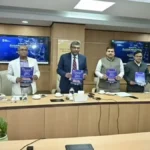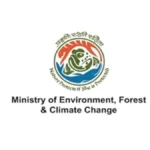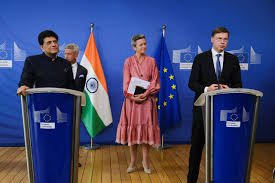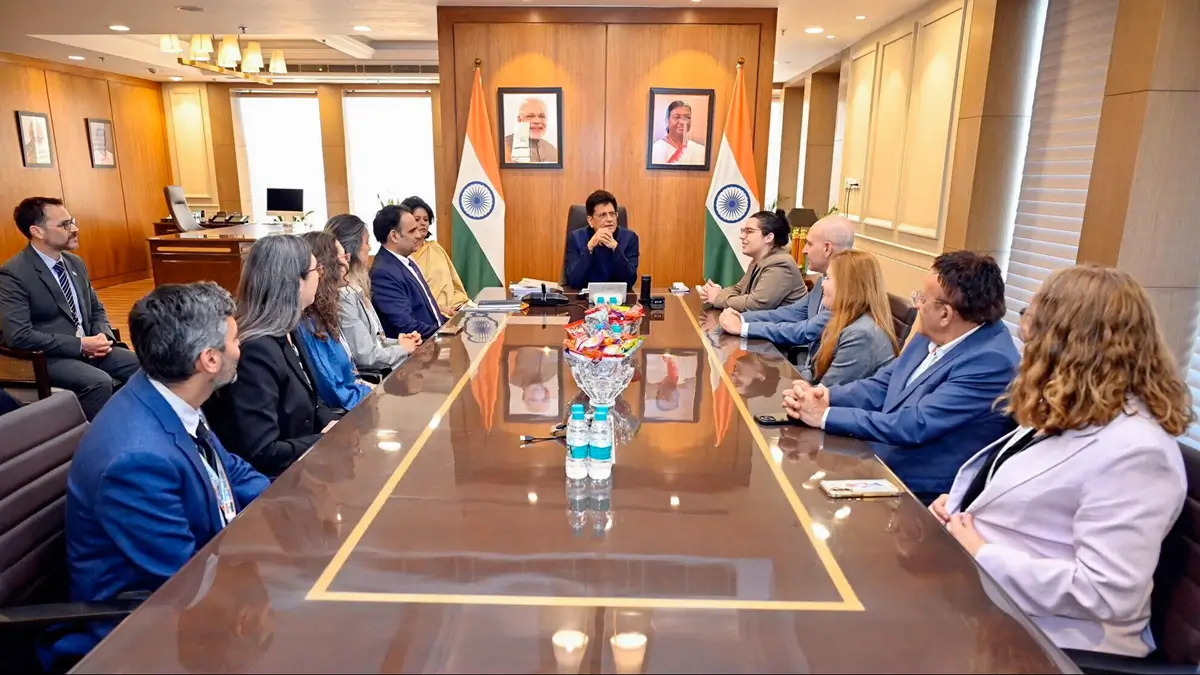India and European Union Agree to Deepen Cooperation in Sustainable Water Management
Introduction to the Agreement
In a landmark move, India and the European Union (EU) have agreed to enhance their collaboration on sustainable water management. This agreement signifies a robust commitment to address global water challenges through innovative solutions and shared expertise. The initiative aims to bolster water conservation efforts and ensure sustainable water resources management across both regions.
Details of the Cooperation
The agreement focuses on several key areas, including joint research projects, technology sharing, and capacity building. Both India and the EU will work together to develop and implement advanced technologies for water purification, waste management, and efficient water use. This collaboration is expected to leverage cutting-edge solutions to tackle the growing water scarcity issues faced by both regions.
Impact on Water Management
The enhanced cooperation is set to have a profound impact on water management practices. By integrating best practices from both India and the EU, the initiative will promote more efficient and sustainable use of water resources. This includes adopting innovative techniques for water conservation, reducing waste, and improving water quality, which are critical for sustaining future generations.
Future Prospects
Looking ahead, this partnership is likely to pave the way for more comprehensive water management strategies. The collaborative projects under this agreement will also create opportunities for knowledge exchange and capacity building, ultimately leading to improved water management policies and practices in both regions.
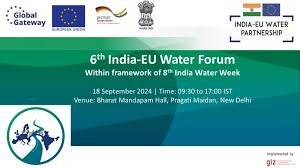
Why This News is Important
Global Water Scarcity
Water scarcity is an escalating issue worldwide, affecting millions of people. The agreement between India and the EU highlights the urgent need to address this global challenge. By focusing on sustainable water management, this collaboration aims to provide viable solutions that can be replicated in other regions facing similar issues.
Strengthening International Relations
This agreement represents a significant step in strengthening international relations between India and the EU. It showcases the commitment of both parties to work together on pressing global issues, thus enhancing diplomatic ties and fostering mutual cooperation in addressing environmental challenges.
Advancing Technology and Innovation
The partnership will drive advancements in water management technologies. This is crucial for both regions as they seek to address their respective water challenges. The integration of advanced technologies and innovative solutions will not only benefit India and the EU but also set a precedent for other countries to follow.
Enhancing Water Quality
Improving water quality is a major goal of the agreement. By developing and implementing better water purification technologies, both regions aim to provide cleaner and safer water to their populations. This is essential for public health and overall well-being.
Capacity Building
The collaboration will focus on capacity building, which is vital for implementing effective water management practices. Training and knowledge exchange will empower local communities and institutions to manage water resources more efficiently, leading to long-term benefits.
Historical Context
Historical Water Management Challenges
Water management has always been a critical issue, with various civilizations developing their own systems to manage this vital resource. In recent decades, the challenges have grown due to increased population, industrialization, and climate change, necessitating more advanced and sustainable approaches.
Previous Collaborations
India and the EU have previously collaborated on environmental and water-related projects. This new agreement builds upon those past efforts, aiming for more comprehensive and impactful solutions. The collaboration also aligns with global initiatives such as the United Nations Sustainable Development Goals (SDGs), which emphasize the importance of clean water and sanitation.
Key Takeaways from “India and EU Agree to Deepen Cooperation in Sustainable Water Management”
| Serial Number | Key Takeaway |
|---|---|
| 1 | India and the EU have signed an agreement to enhance water management cooperation. |
| 2 | The agreement focuses on joint research, technology sharing, and capacity building. |
| 3 | This collaboration aims to address global water scarcity and improve water quality. |
| 4 | The partnership will drive advancements in water management technologies and practices. |
| 5 | It will also strengthen international relations and set a precedent for global environmental cooperation. |
Important FAQs for Students from this News
1. What is the main objective of the agreement between India and the EU?
- The main objective is to enhance cooperation in sustainable water management through joint research, technology sharing, and capacity building. This aims to address water scarcity issues and improve water quality.
2. How will the cooperation benefit water management practices?
- The cooperation will introduce advanced technologies and innovative practices for water purification and conservation, leading to more efficient and sustainable water management in both regions.
3. What are the key areas of focus in the India-EU water management agreement?
- The key areas of focus include joint research projects, technology sharing, capacity building, and the development and implementation of advanced water management technologies.
4. Why is this agreement significant for international relations?
- The agreement is significant because it strengthens diplomatic ties between India and the EU by showcasing their commitment to working together on global environmental challenges, thus fostering mutual cooperation.
5. What impact might this collaboration have on global water management?
- This collaboration may set a precedent for other countries and regions to adopt similar sustainable water management practices, thereby contributing to global efforts to address water scarcity and improve water quality.
Some Important Current Affairs Links





